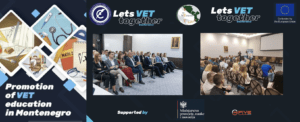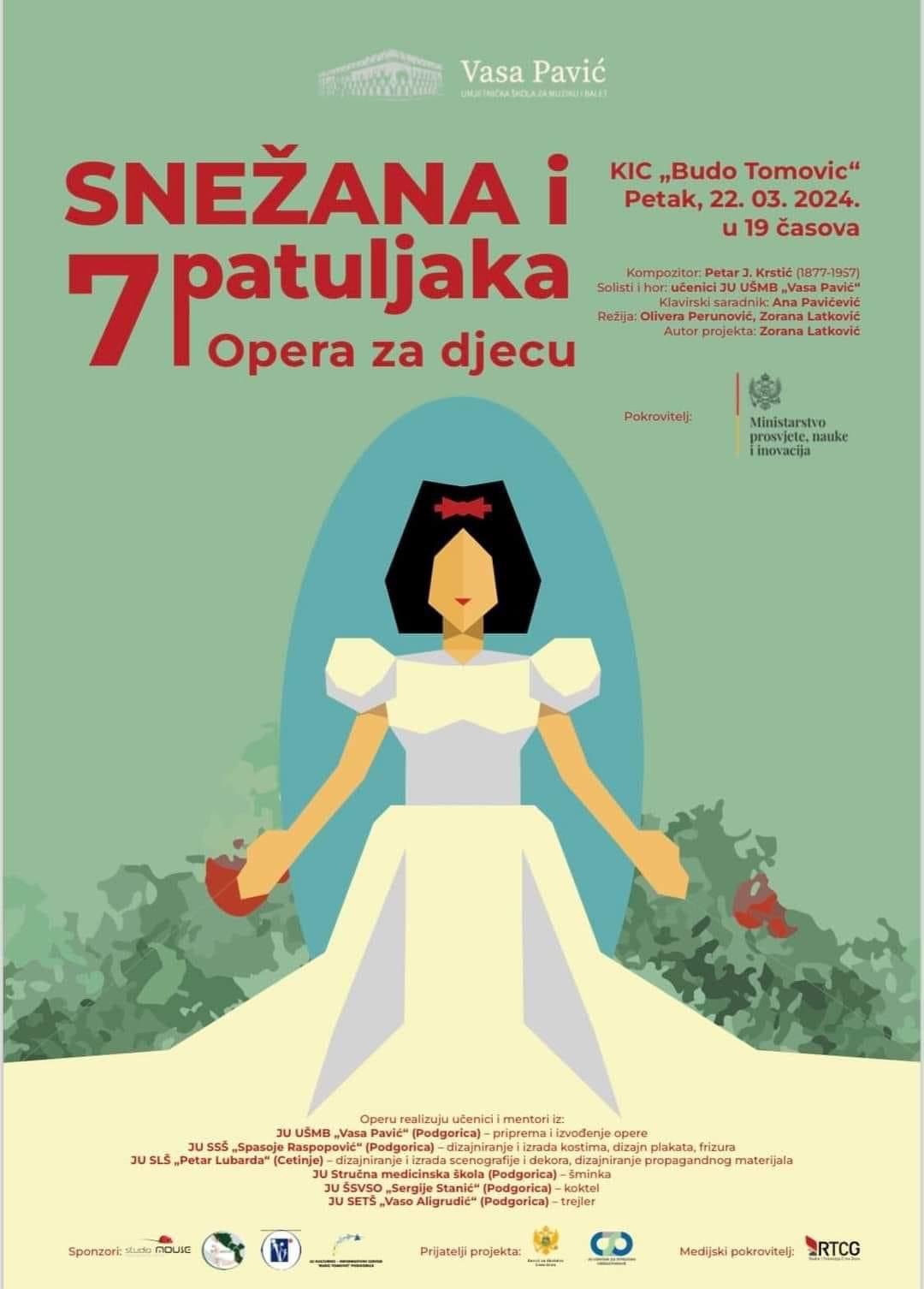

Lets VET together
Lets VET together May 28, 2024| Podgorica, Montenegro The “Let’s VET Together” Conference was held on May 28, 2024, at the Hilton Hotel in Podgorica,
“Srednja škola metalskih zanimanja” is located in a big building in the center of Sarajevo. It is very old – 130 years old – and was the first technical school in the Bosnian territory during the Austrian-Hungarian imperium. Civil engineering and forestry were the first fields to provide professional training for. It is a school with many proud traditions and a good reputation.
“High school of Metalworking crafts” provides 3- and 4-years programs for students 15-18 years old. Vocational education lasts three years and it deals with all sorts of metalworking crafts such as car mechanic, metal sheet workmanship, welding, central heating and gas installations, water supply and sanitation installation and CNC machining technologies (HASS certified training center) (teething and milling). It also educates technicians (4-year program) in automotive field, mechatronics (general) and aviation (engine and aircraft maintenance) (ESA certified PART 147 program).
It is the only school in Bosnia and Herzegovina, which teaches the old traditional handcrafts although not a very big number of students apply for these educations. Most of those who do, are children of parents who are having shops in the field of these handcrafts. Jewelry is the most popular handcraft among the students.
Practical training: Only a small part of the practical training is taking place at companies – the most part takes place at the school. Sometimes visits to companies are organized for the students to see how it is to work there.
The school has 60-70 employees, app. 50 of them are teachers, most of them are machine engineers with university educational background.
The school has app. 250 students. It is offering a large spectrum of educations and subject to attract students. It also tries to promote its talented students. Every year, new educations/subjects are added to meet demands, and others are taken out. “High school of Metalworking crafts also provides adult education: Employees having worked at least two years at a company can have supplementary training here. The training is not free but must be paid for.
Challenges regarding attracting students: Parents prefer to send their children to gymnasium. (Gymnasiums in Bosnia are all general high schools). It is more prestigiously than VET, in spite of the fact that actually there is a need – and a lack – of persons with VET education, for instance of good carpenters and welders. The Slovenian participants mentioned that it is the same in Slovenia.
Before the war in the 1990’ies, there were strong industries in Sarajevo and companies gave stipendiums to students to attract them for future employment, however, now this has totally changed.
As to previous participation in projects, the school has participated in several (but none with EU grants). Examples of projects: exchange of students with French school and ecological school project.
The school has also started teaching entrepreneurship. This year is the first year with this activity. Here, the challenge is the mindset of students.
Efforts are made to communicate knowledge of national history and culture to the students. The school has a library with not only technical book but literature of fiction and history.
The Slovenian participants showed a presentation of their school and also a video that has been produced to promote it. Among others, they informed about their experience with work-based learning, training of mentors at companies and education programs that give access to higher education. In Slovenia there are also higher vocational schools (tertiary short cycle education) within school centers. (The Slovenian presentation is attached). The Bosnians informed that the VET sector in Bosnia cannot provide programs that give access to higher education.
The dialogue between the Slovenian and Bosnian participants about how their cooperation will take place (regarding mobilities and trainings) was initiated and will continue during the kick off meeting in Denmark.
Regarding VET4WB project the director has informed about it and have approved substitute teachers for the teachers who will take part in mobilities
It was discussed that it might be a good idea to invite a representative from the Ministry to the kick off in Denmark. To give an impression of what dual VET system actually is and to give a feeling g of ownership to the VET4WB project
The four Bosnian teachers expressed their wishes regarding what they want to gain from the project:
Mobilities: Students can stay at the student dorm in Kranj. Teachers at a motel nearby. It will not be difficult to find students with sufficient English knowledge. However, teachers need a brush-up course. We must be aware of insurance and make certificates.
Finally, it was decided during the meeting that “Sticting Landstede” from the Netherlands will be the secondary partner of “High school of Metalworking crafts.


Lets VET together May 28, 2024| Podgorica, Montenegro The “Let’s VET Together” Conference was held on May 28, 2024, at the Hilton Hotel in Podgorica,

Opera for children “Snow White and the Seven Dwarfs” March 22, 2024| Podgorica, Montenegro The first opera for children “Snow White and the Seven Dwarfs”